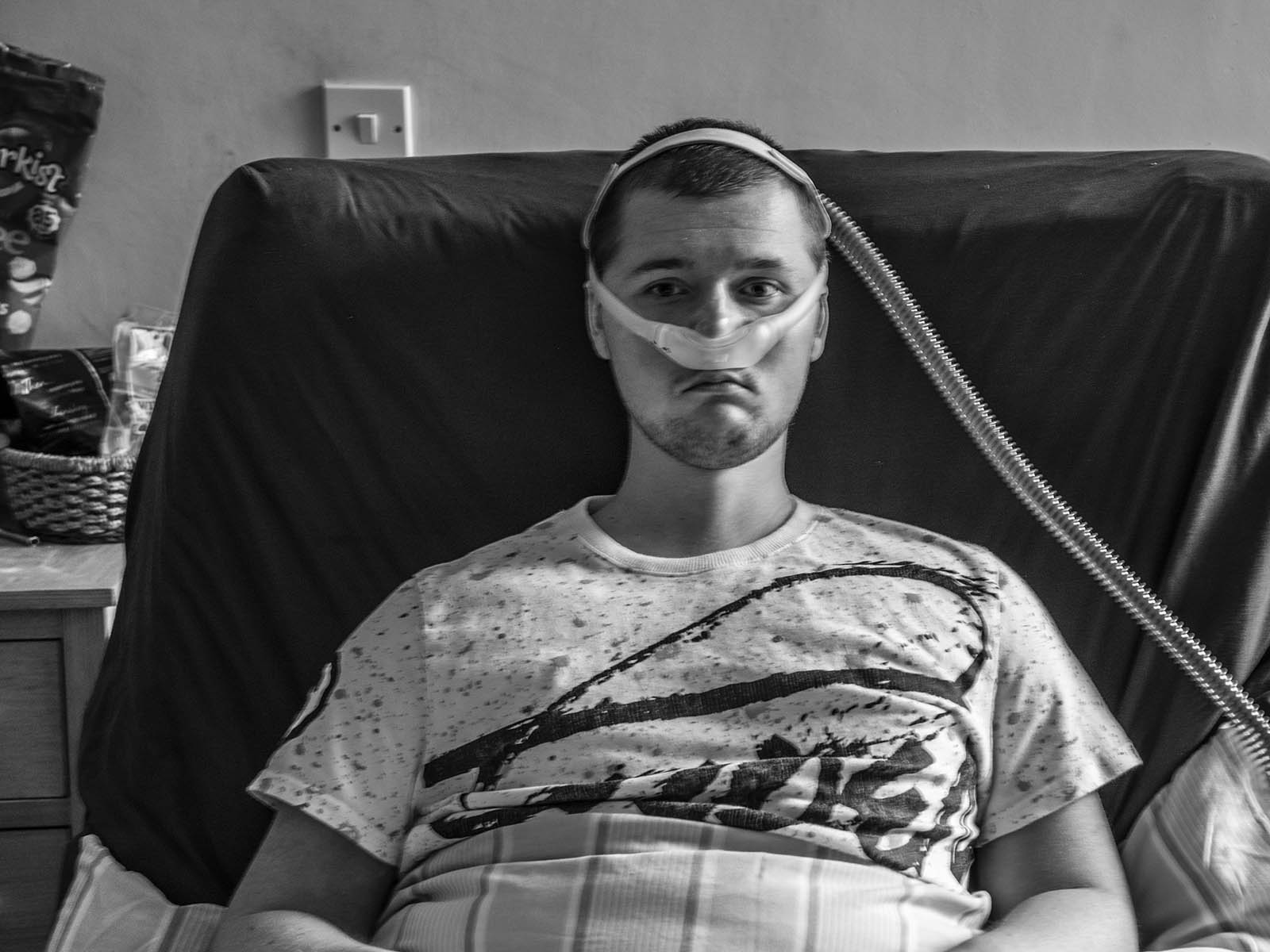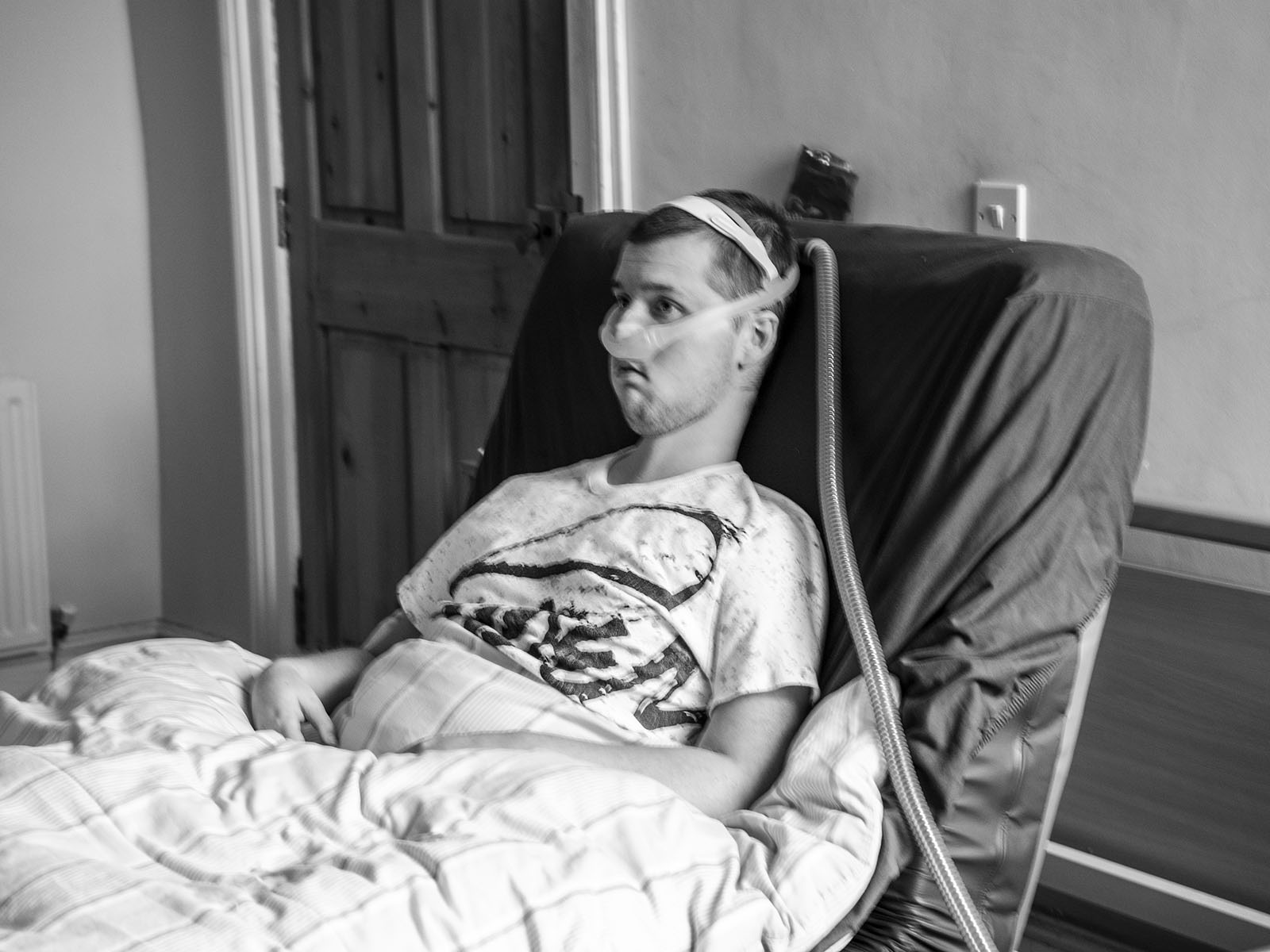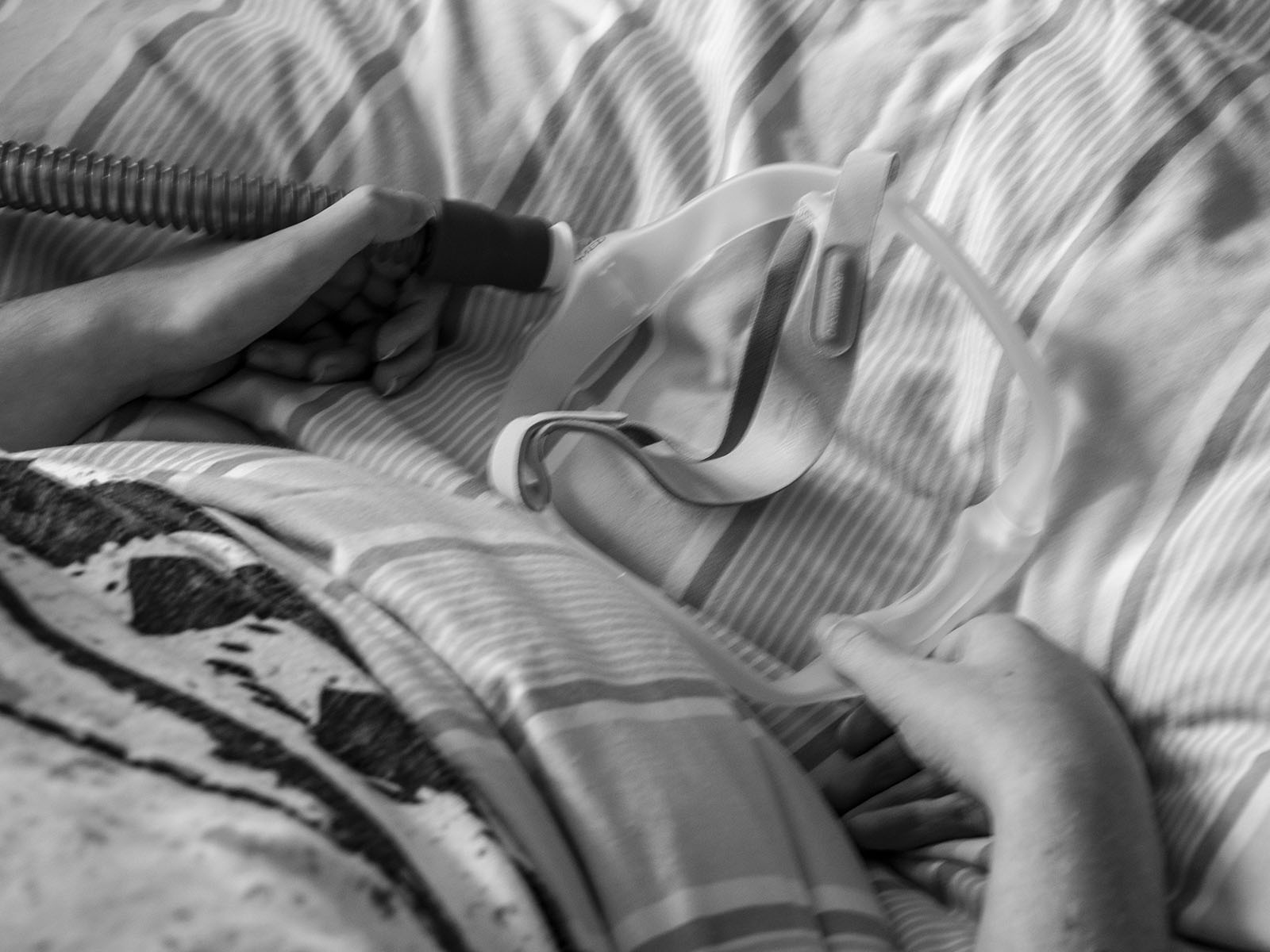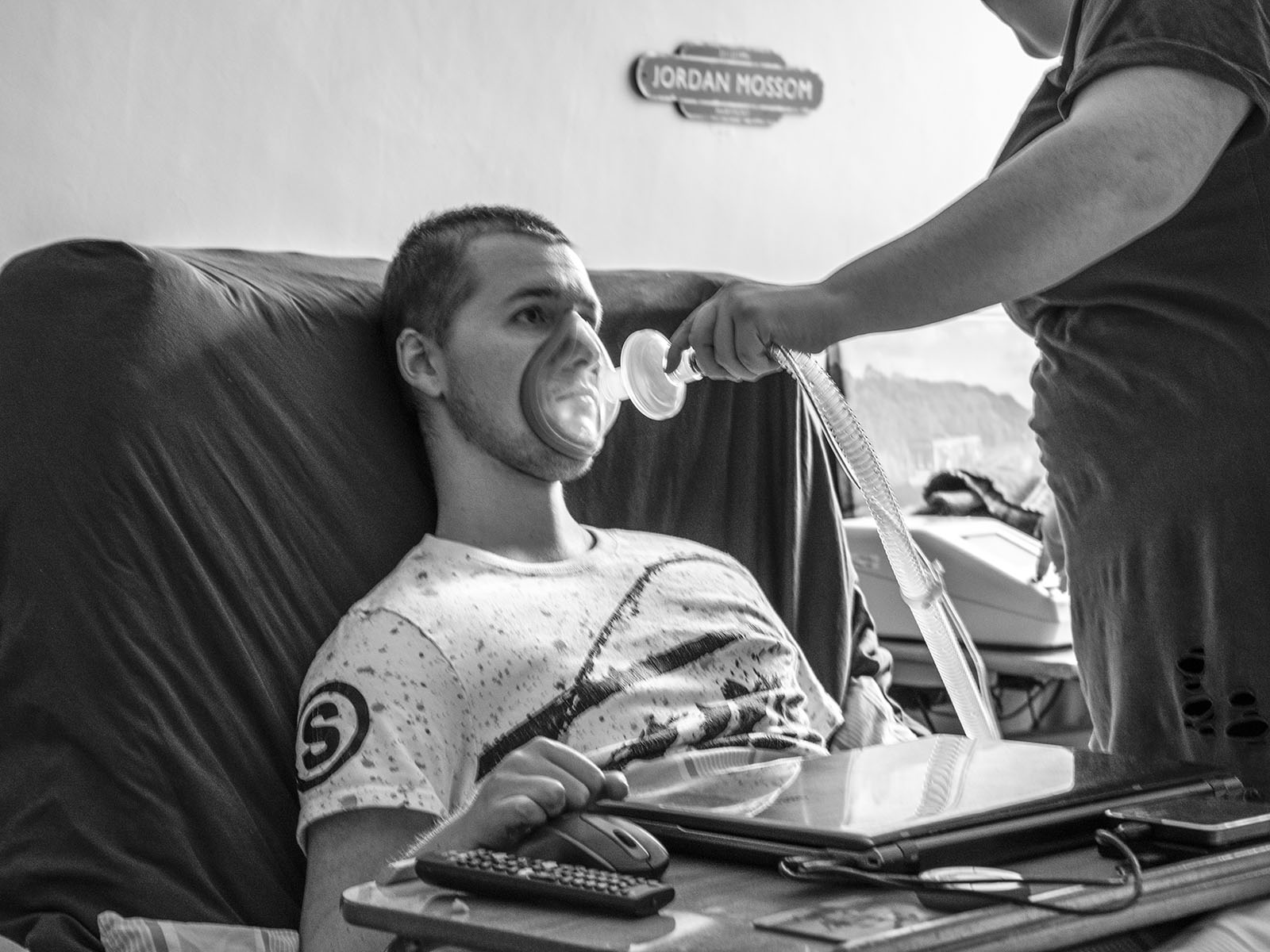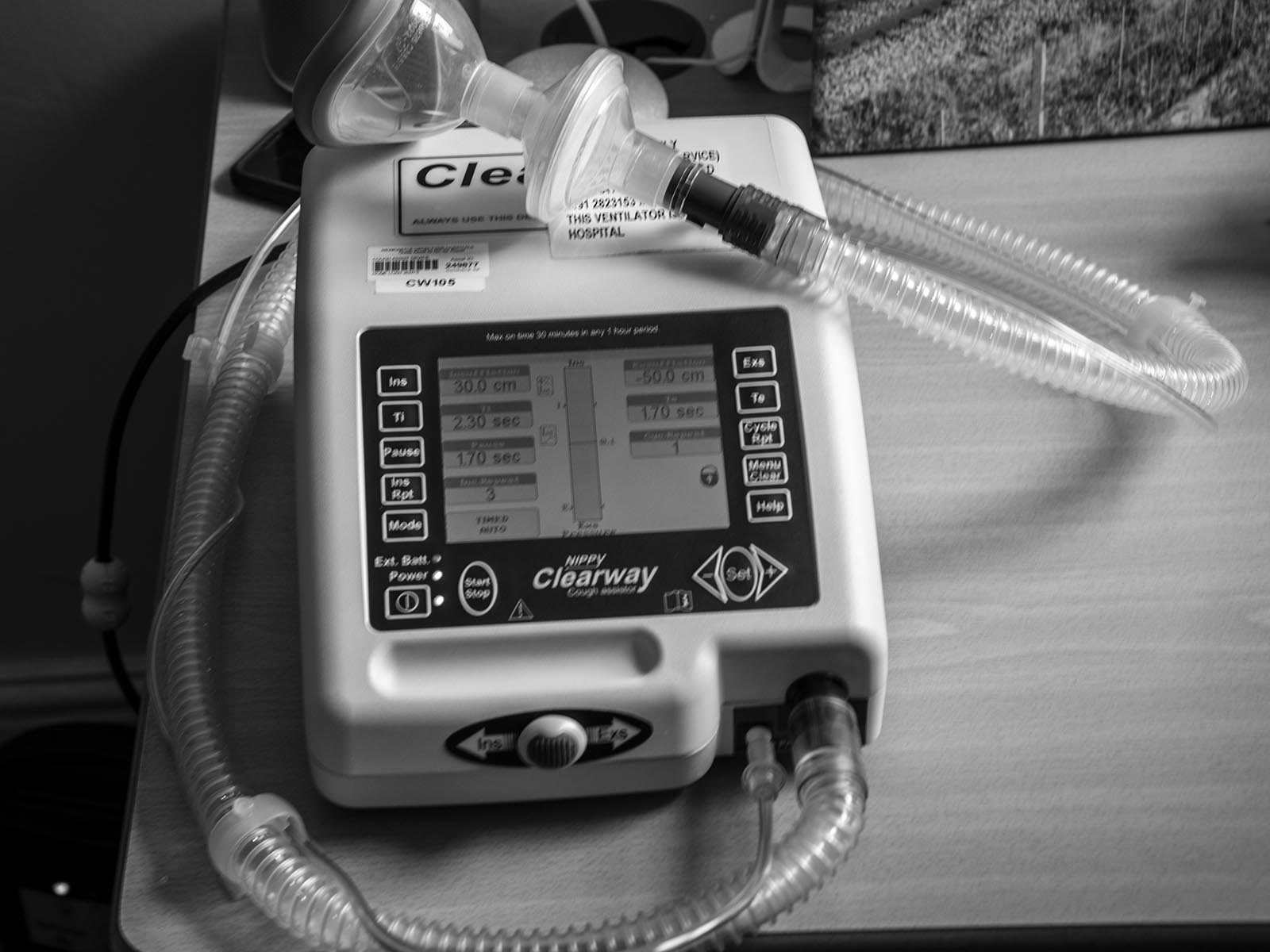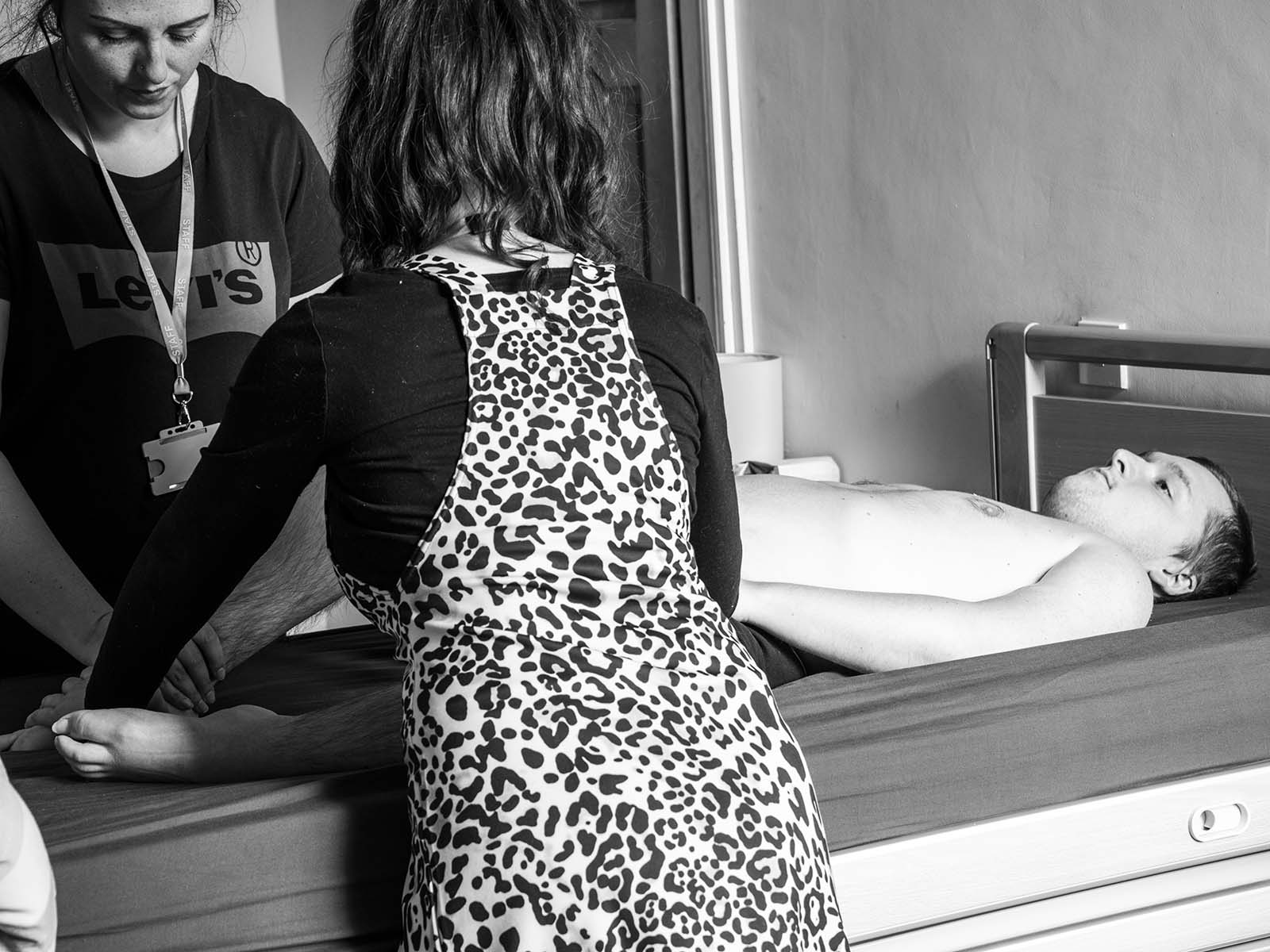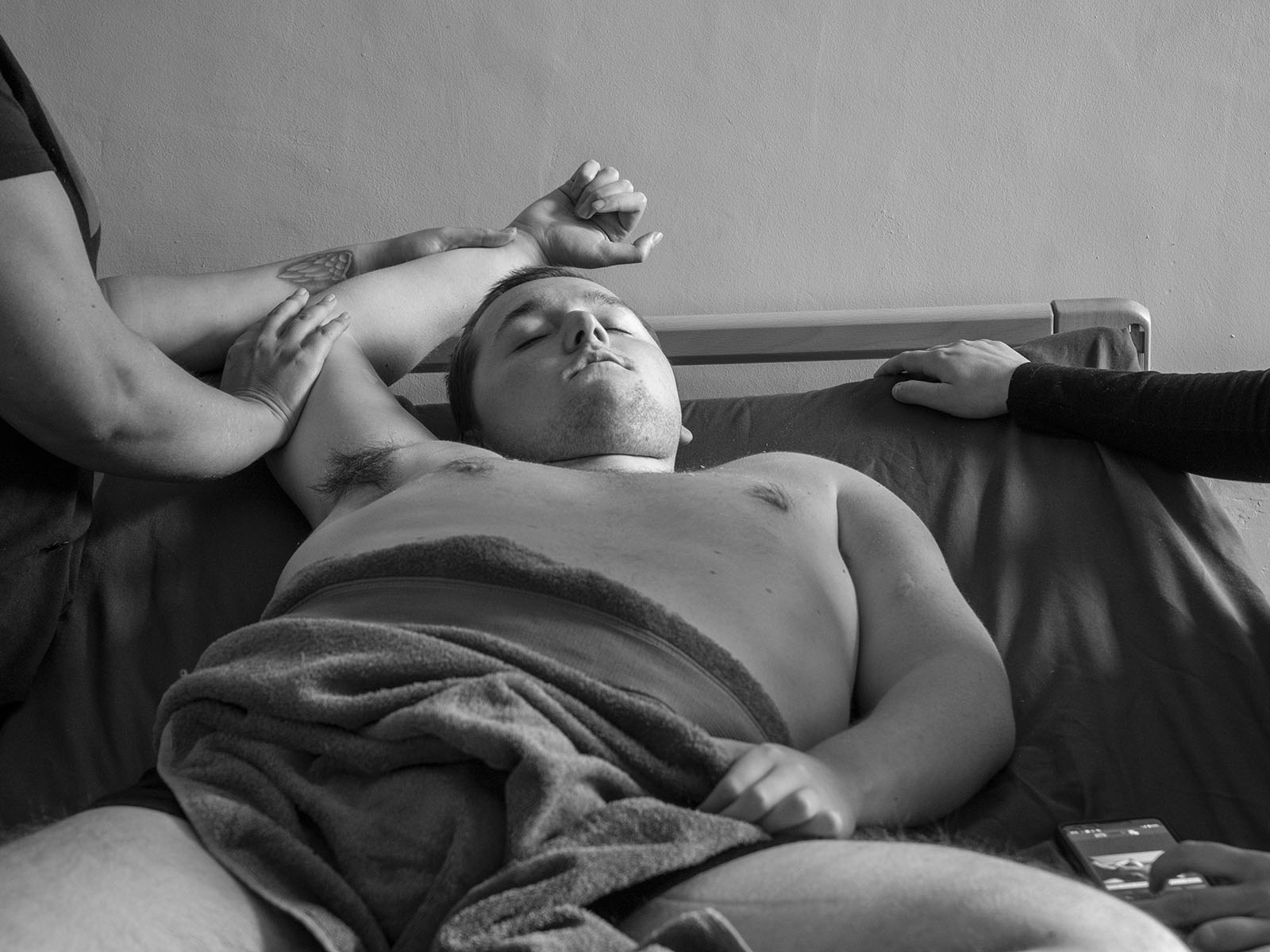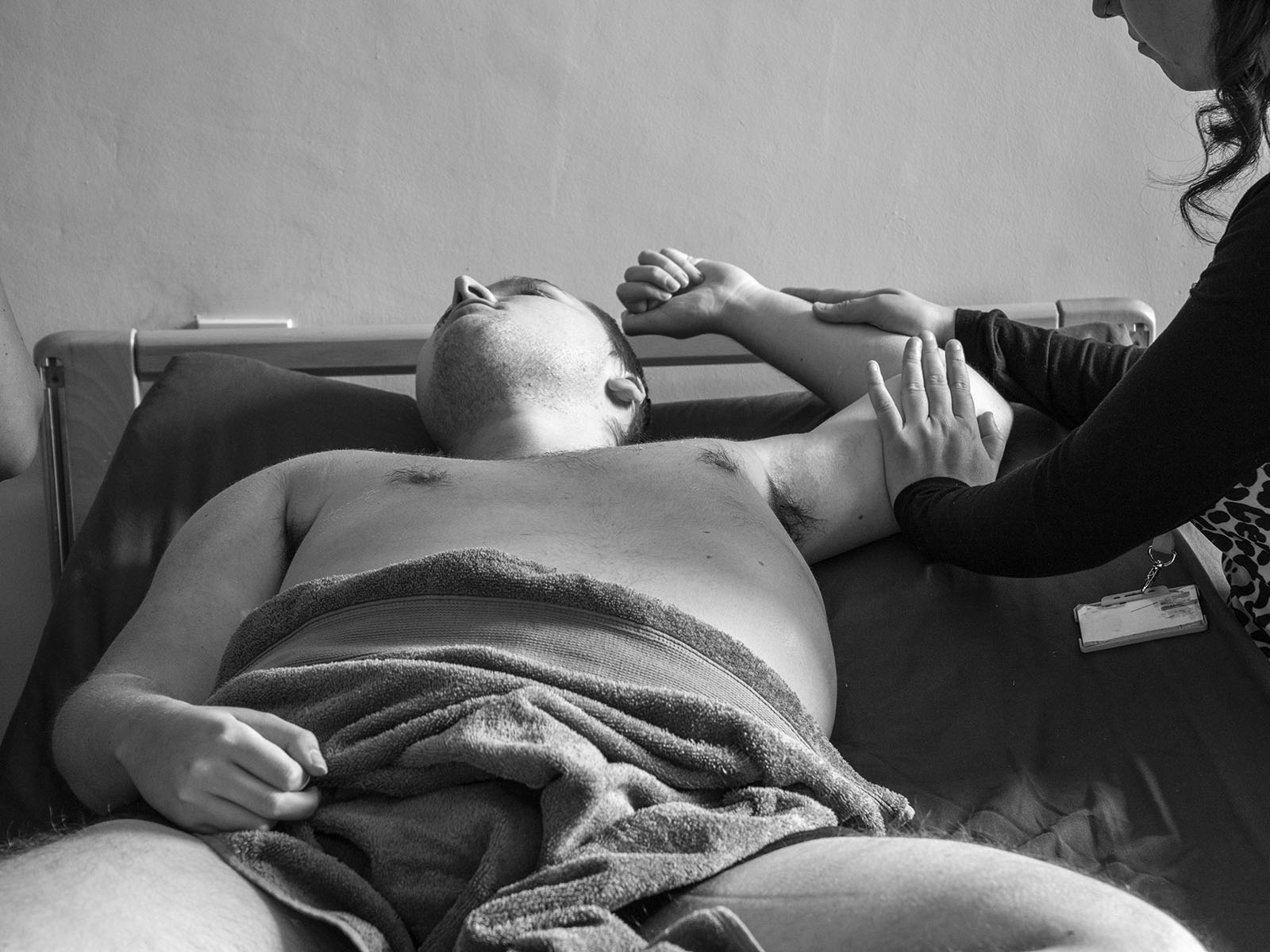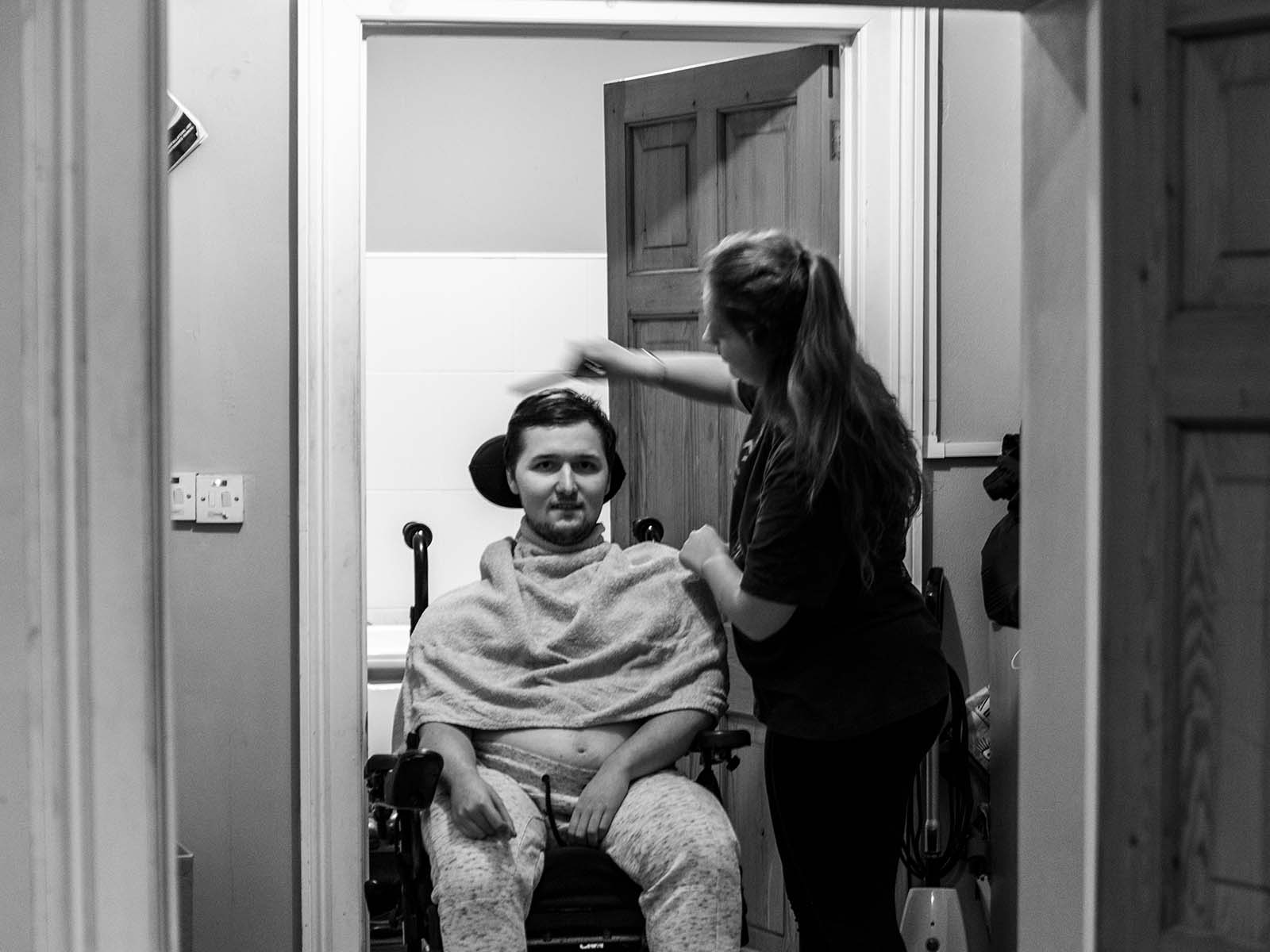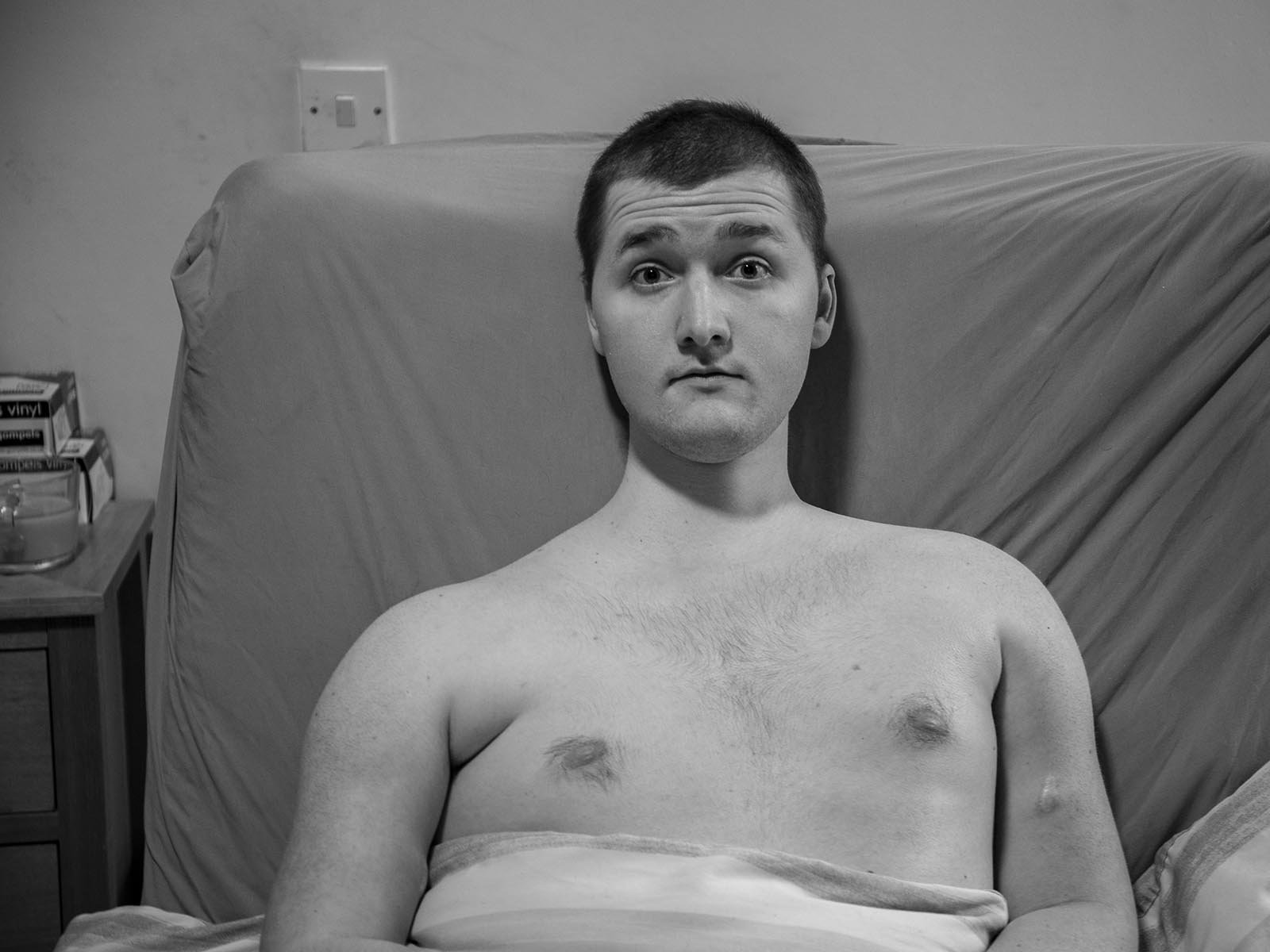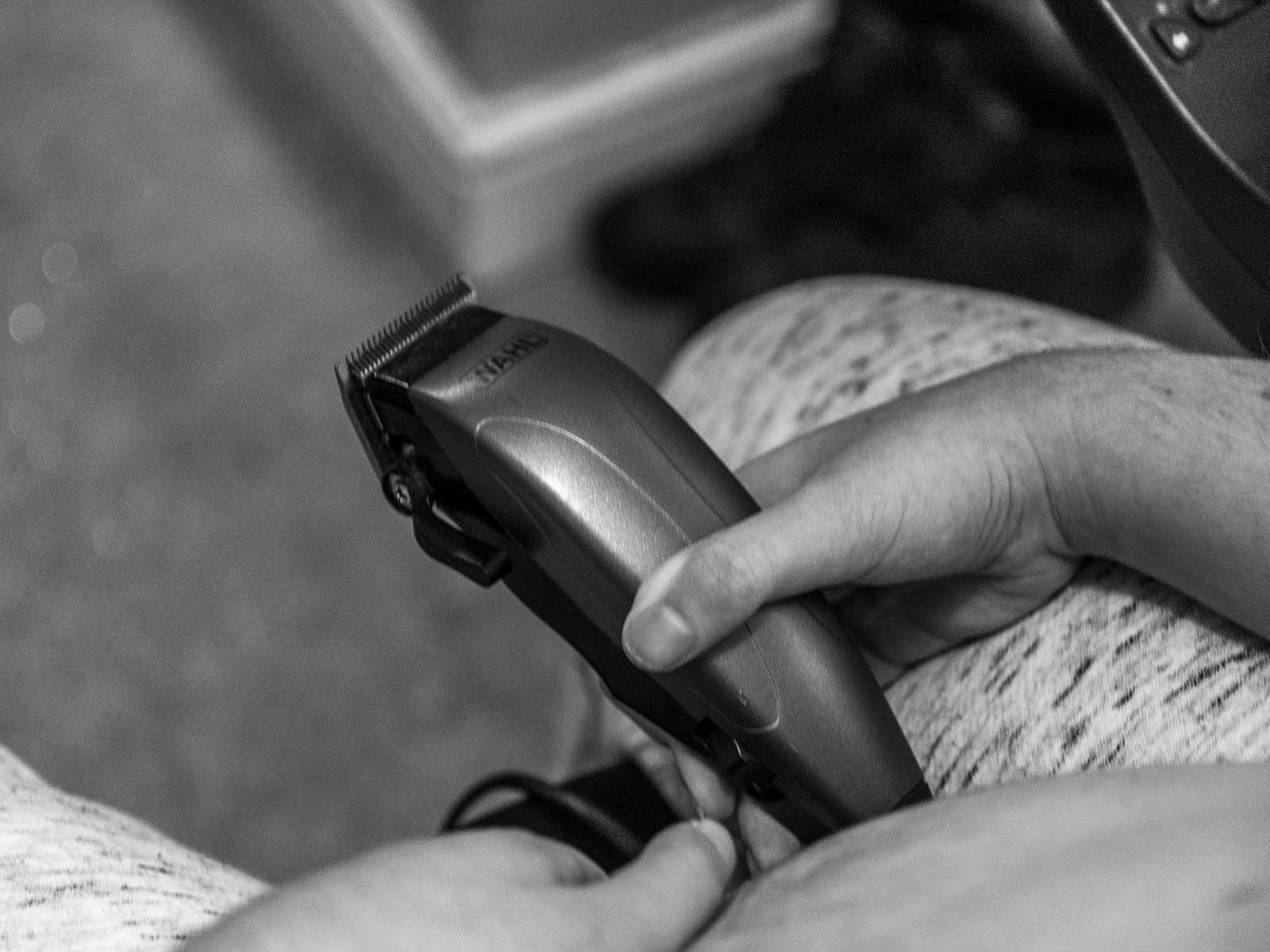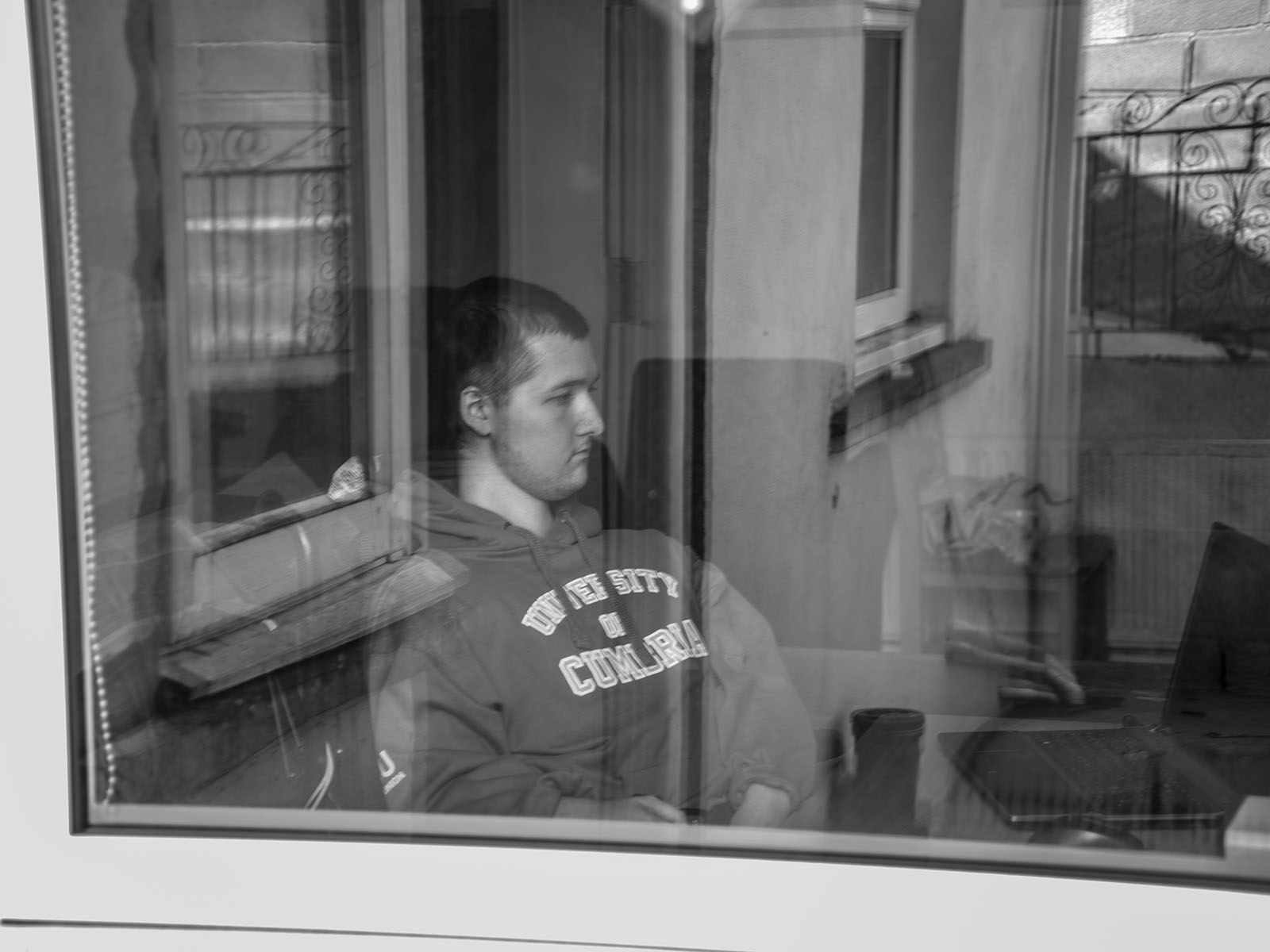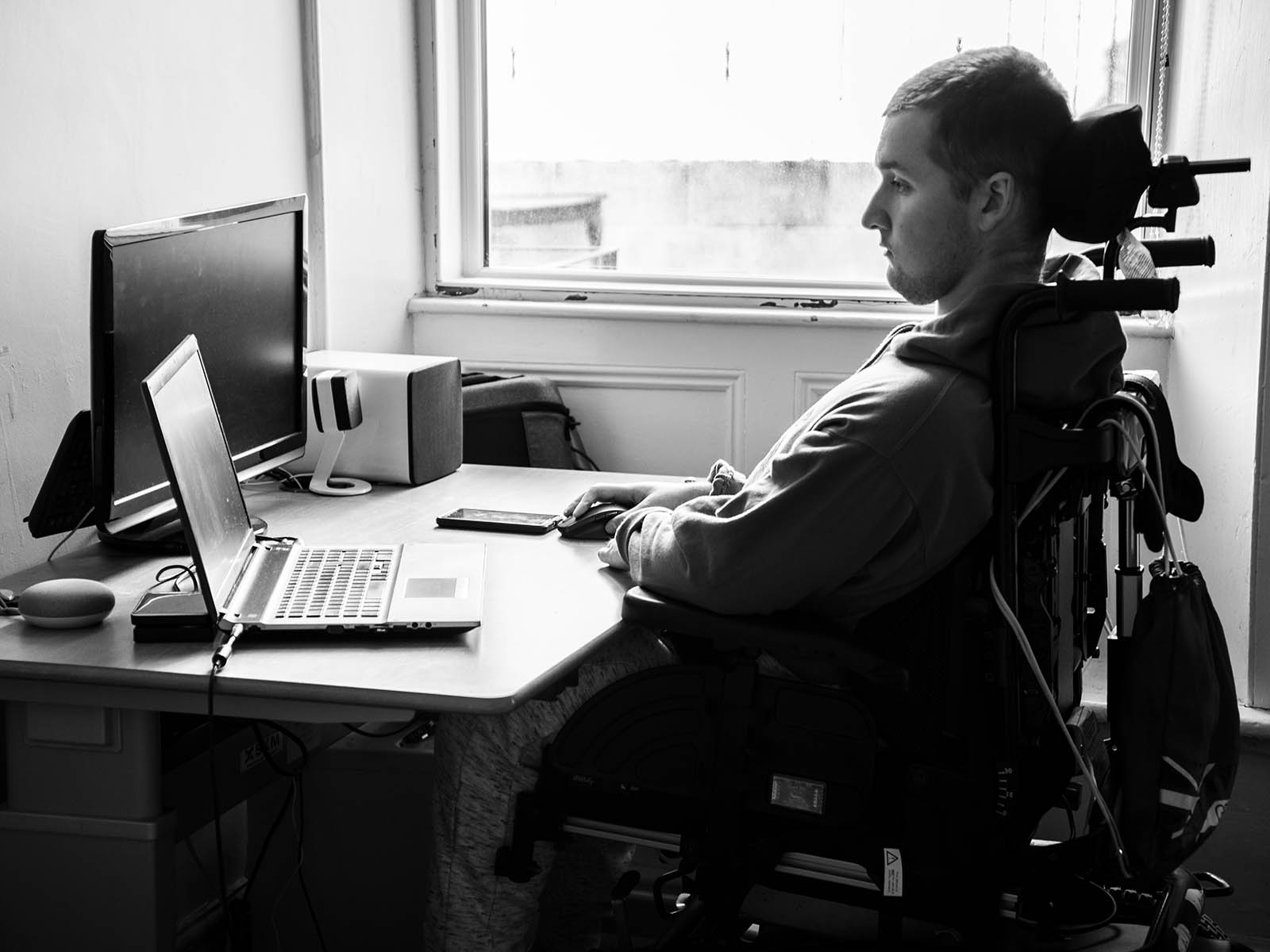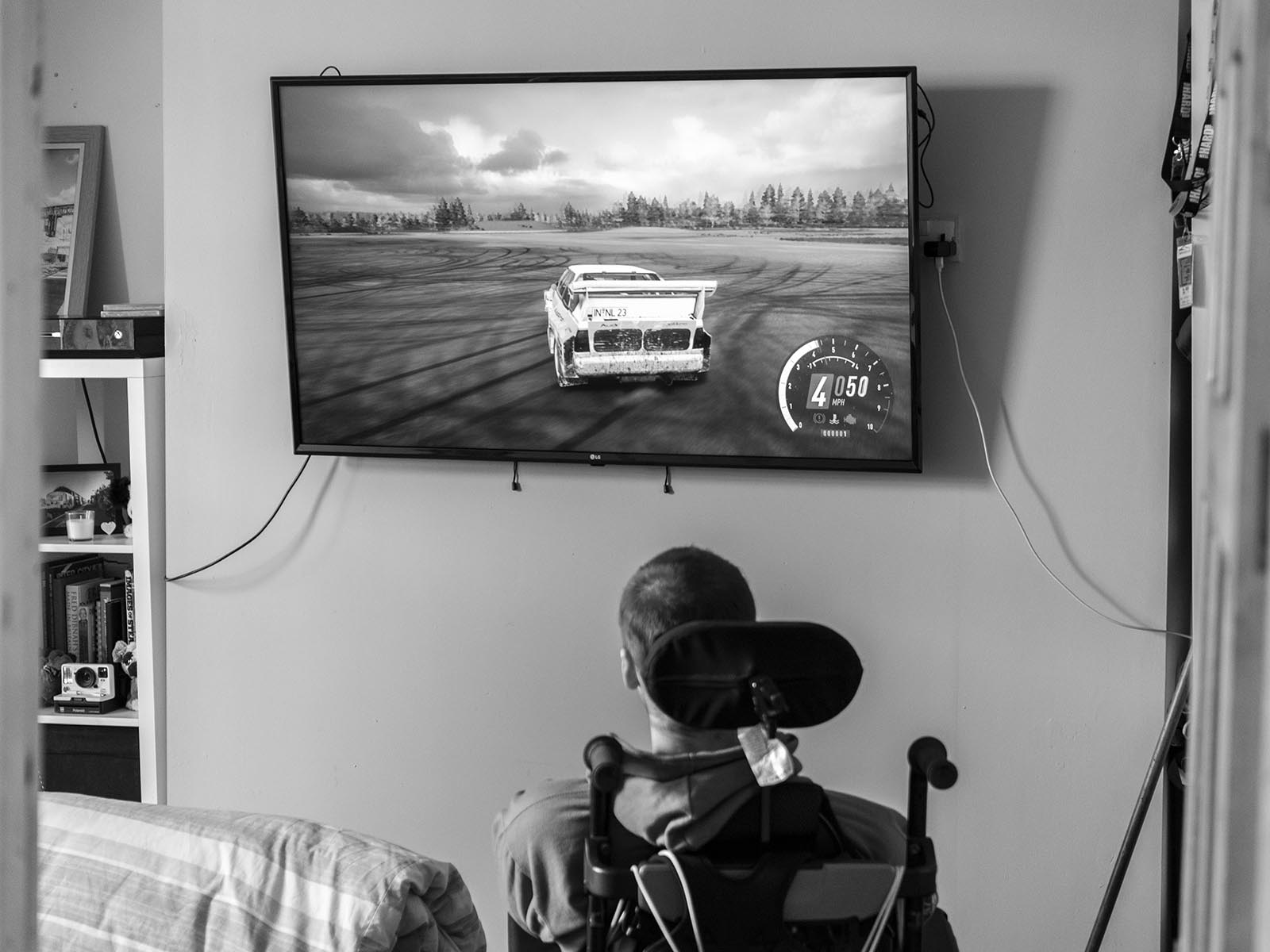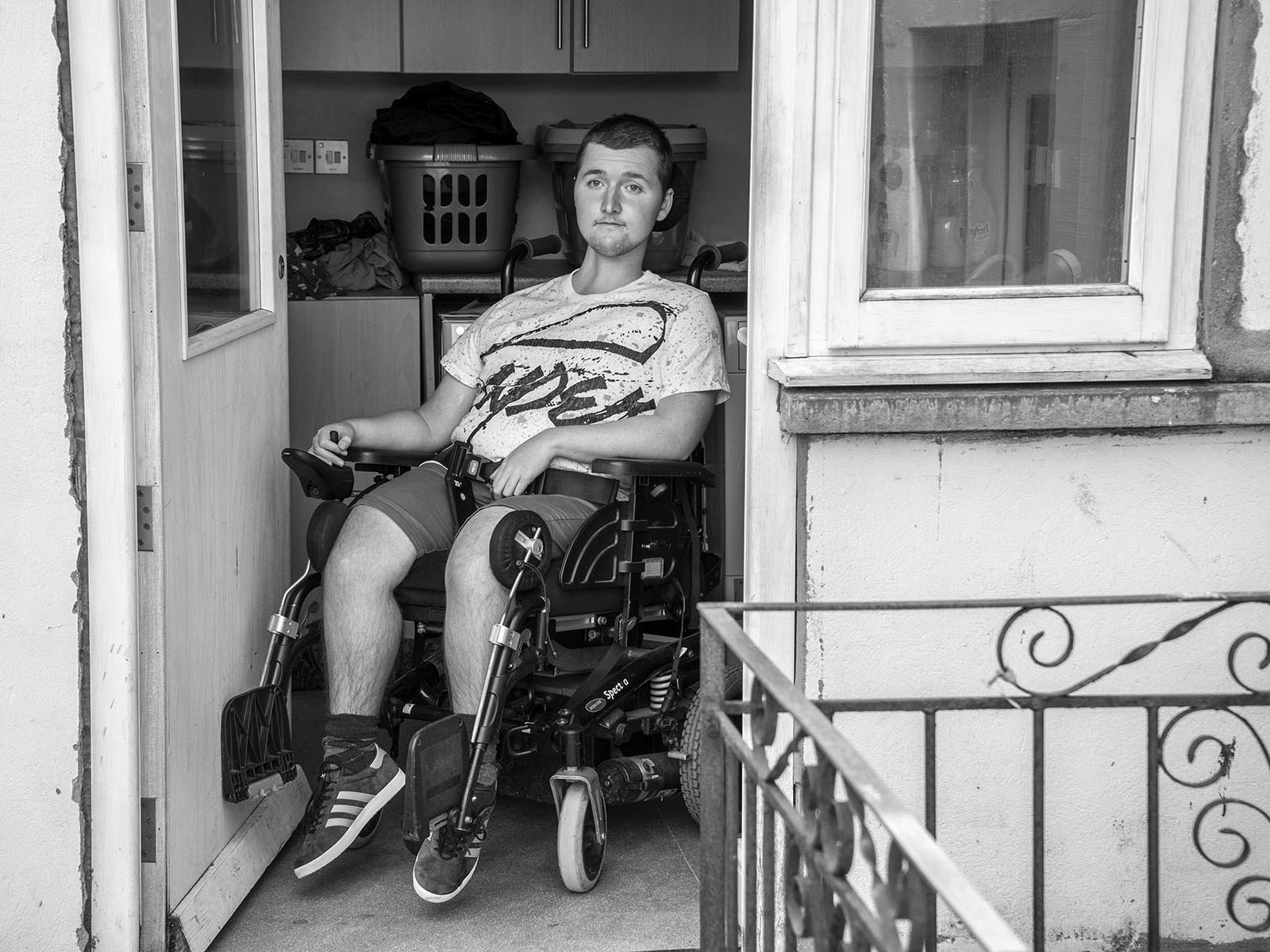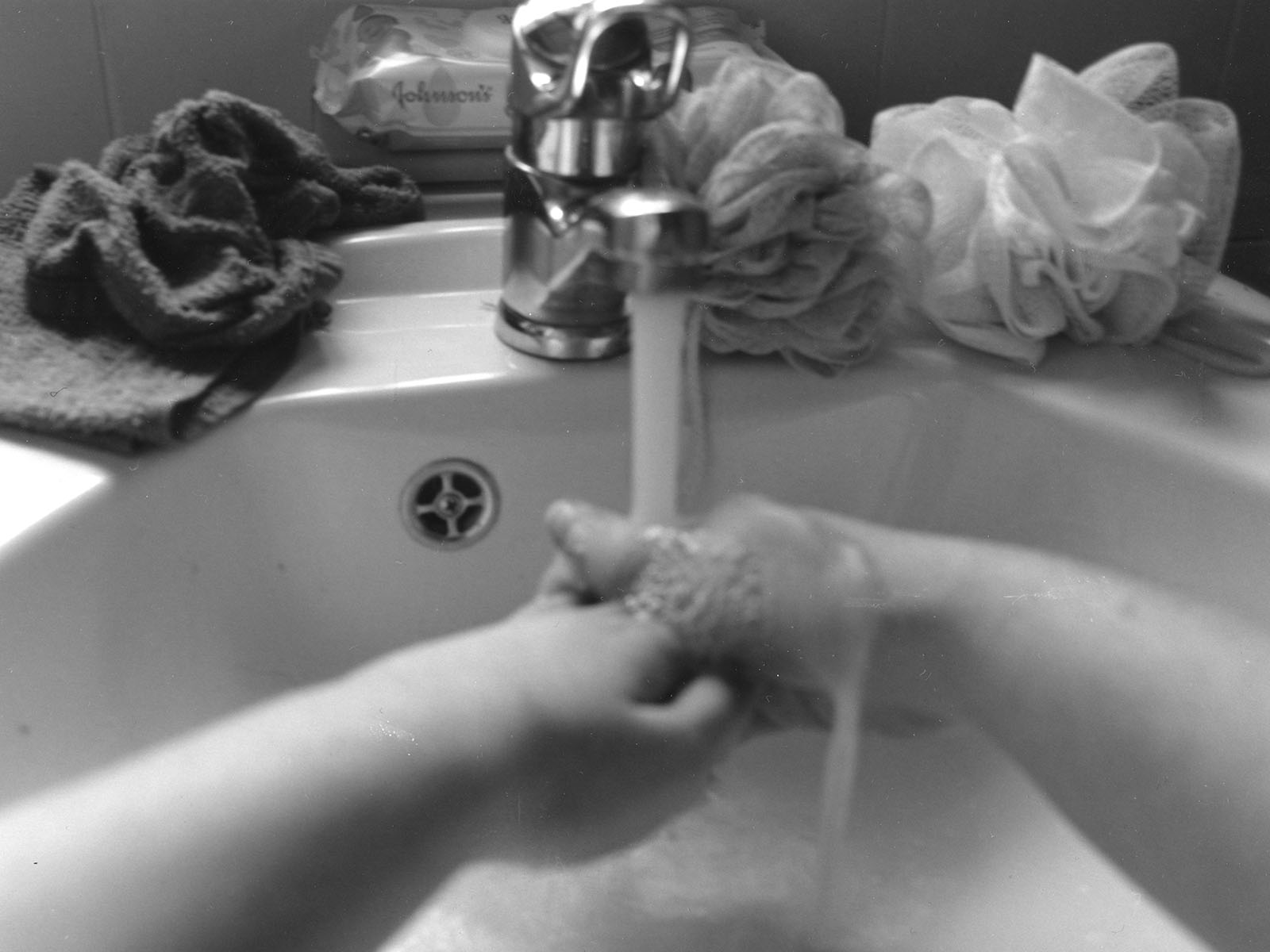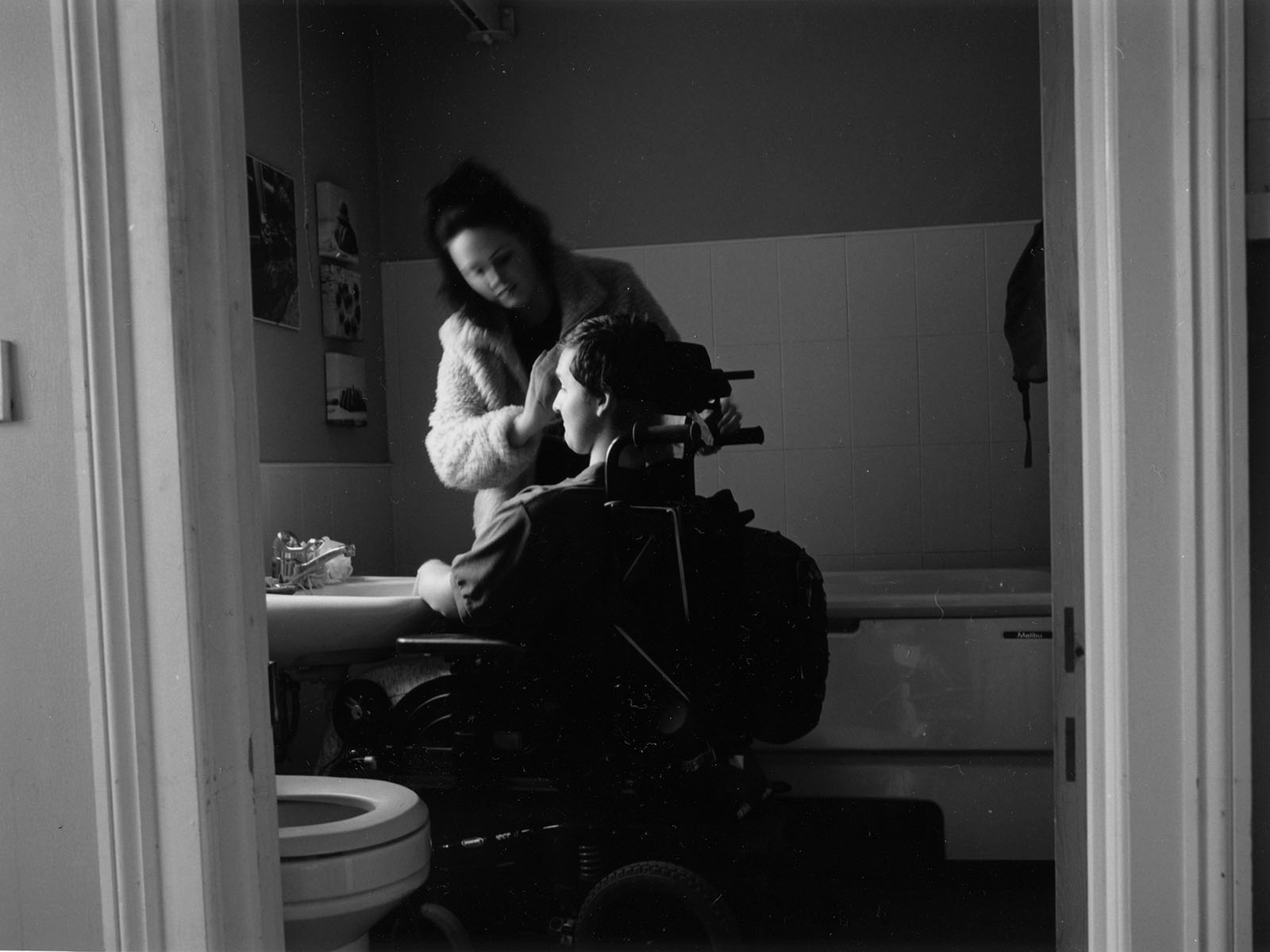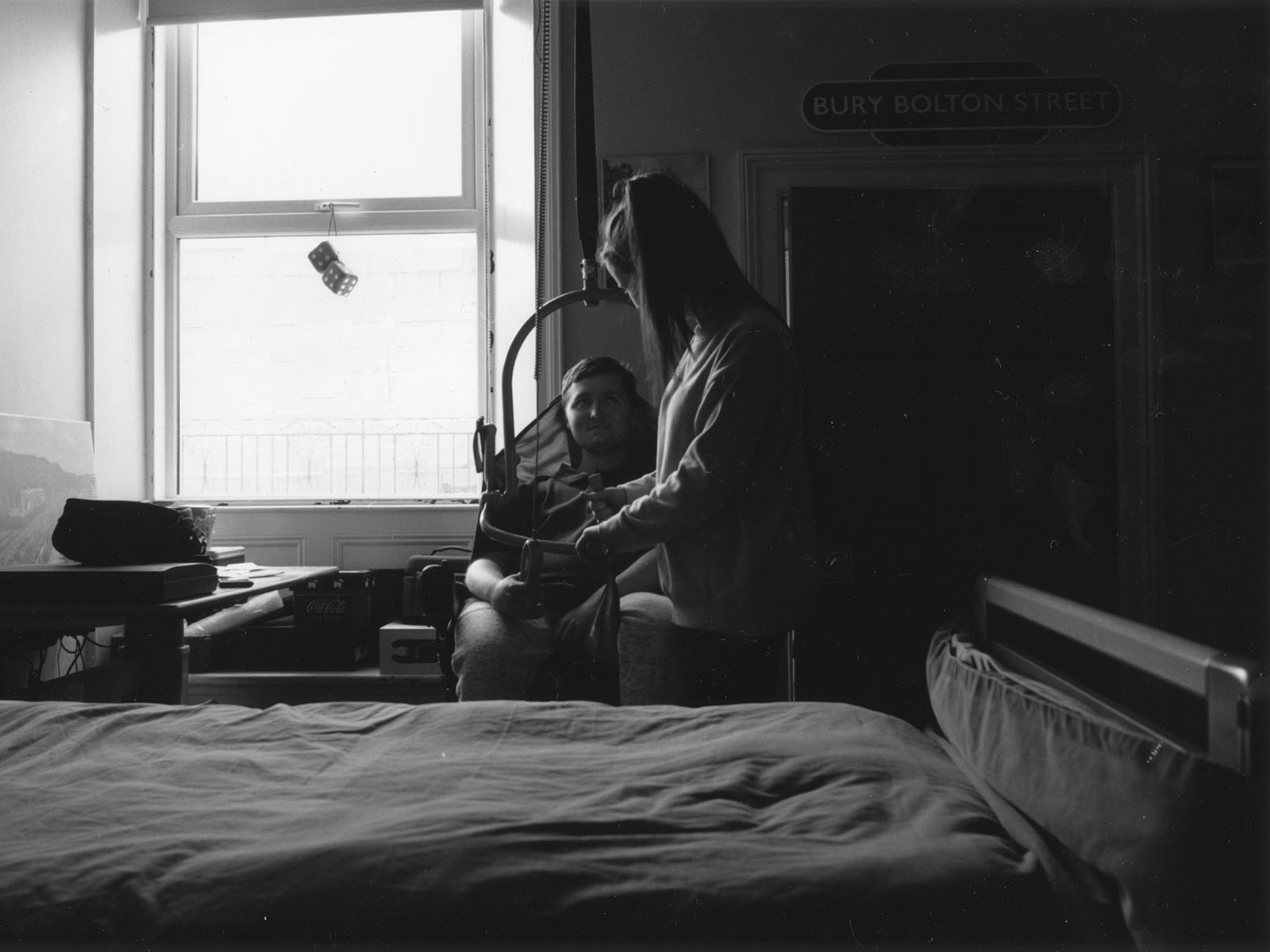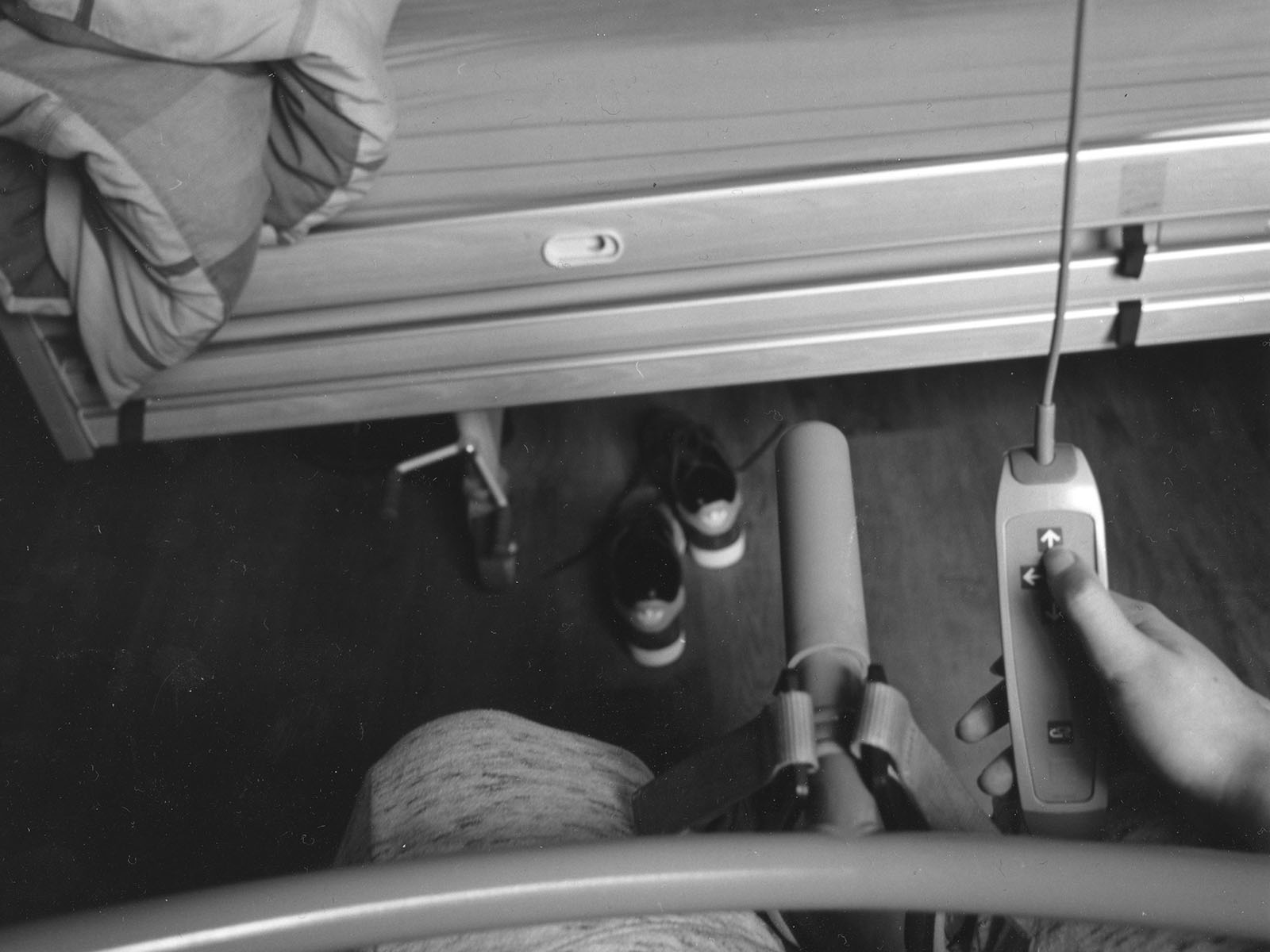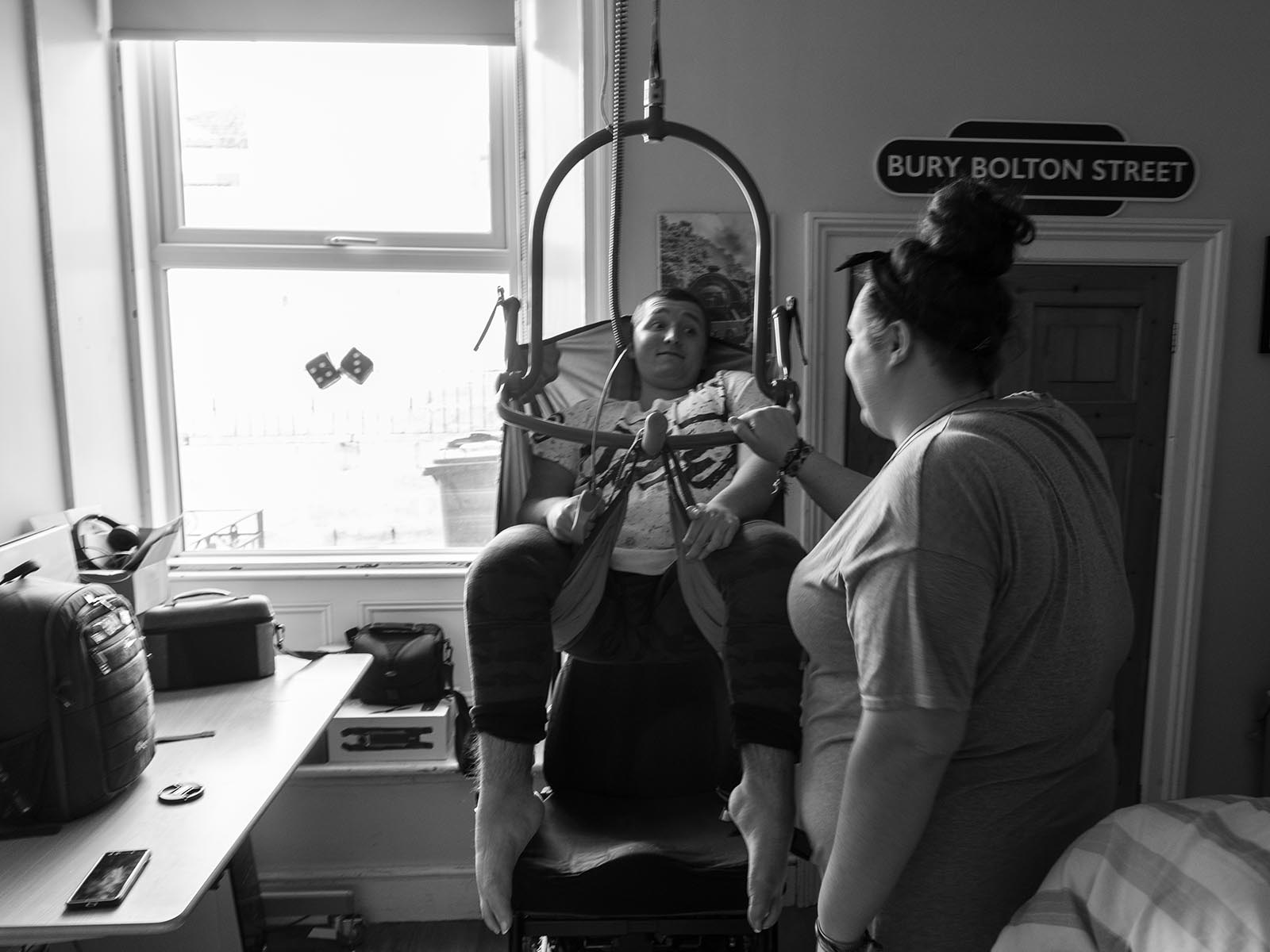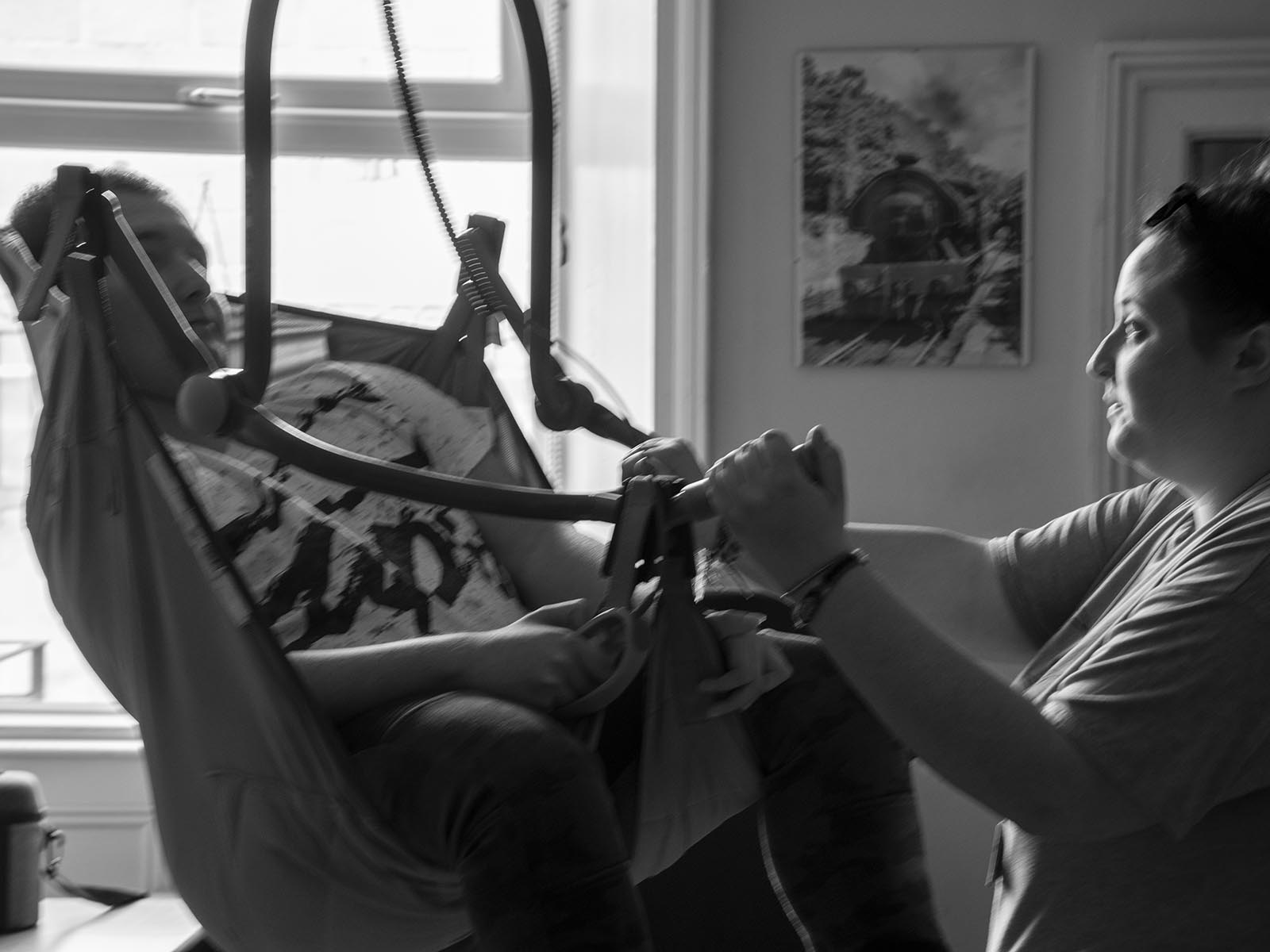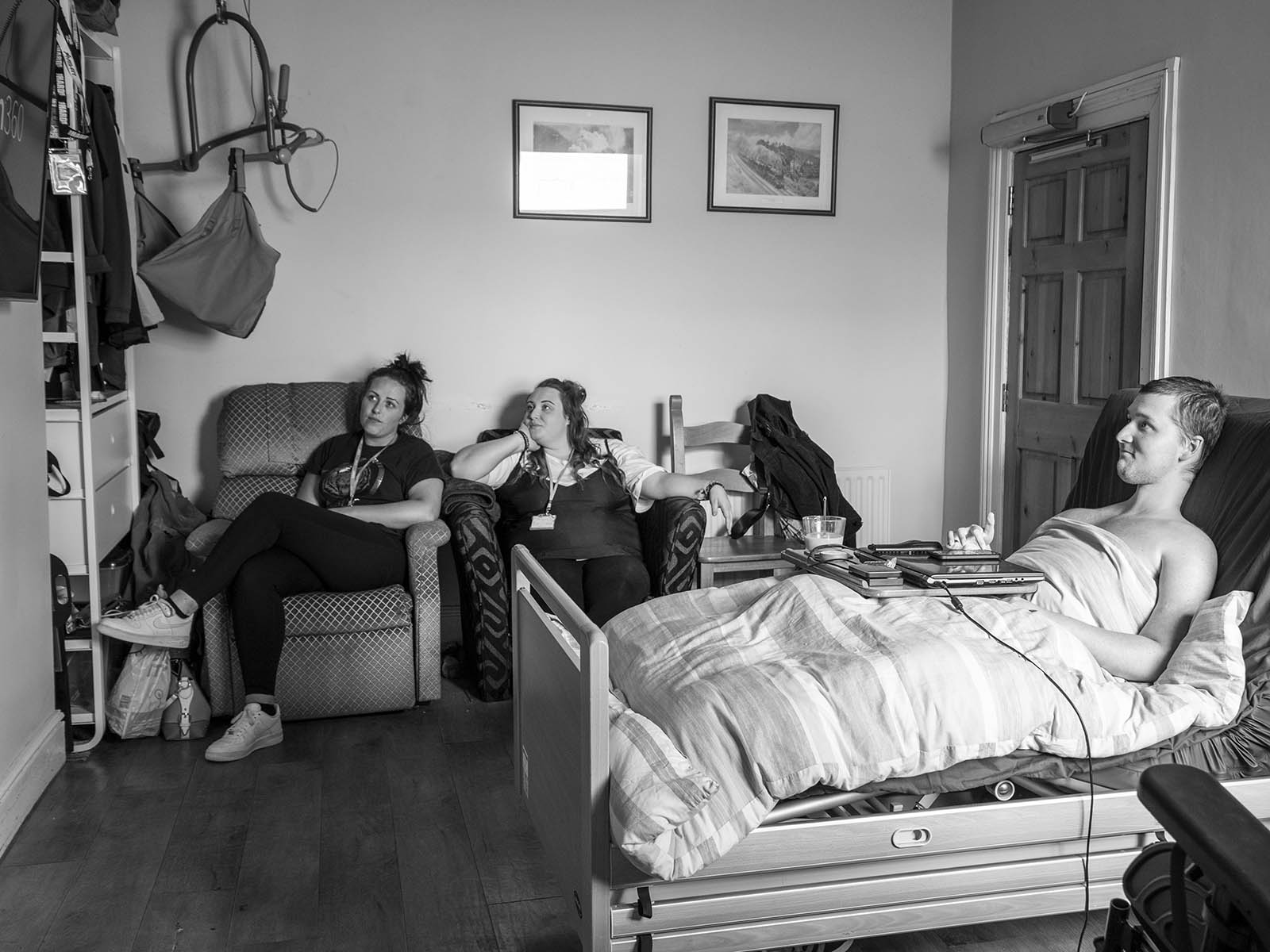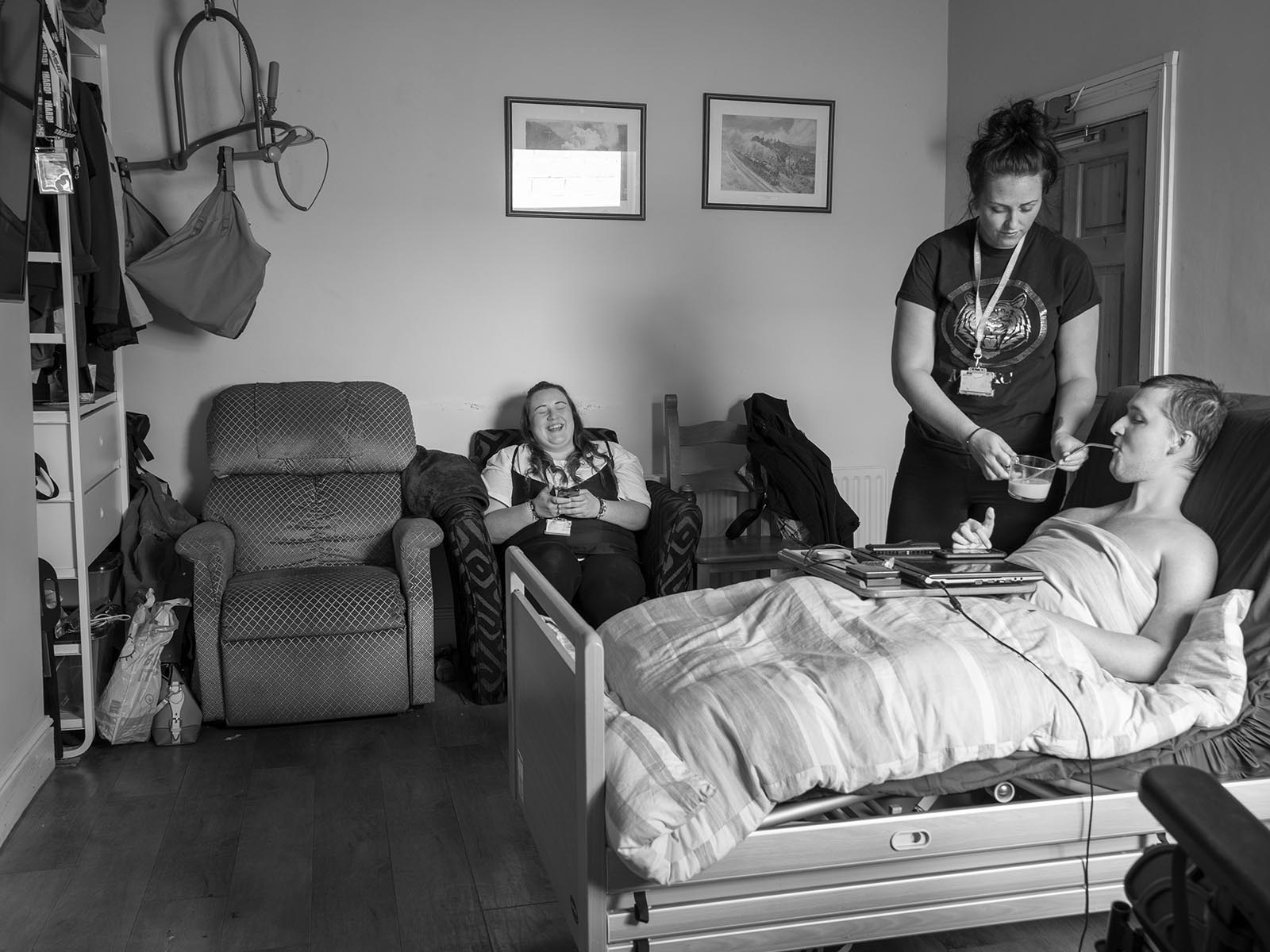Jordan Mossom – ‘Daytime Disability’
Daytime Disability is a documentary project which brings an insight into the daily life of a disabled person living with a severe life-threatening condition, in this case Duchenne Muscular Dystrophy (DMD). It is a deeply personal, intimate and honest series of images. The project documents the day-to-day activities of Jordan and the role of his two support staff have to help him with his activities and to ensure he can live as independently possible. This includes activities that most able-bodied people take for granted, such as bathing, dressing, eating, and working from home. But there are some oddities that some people won’t see in their lifetime, such as medical equipment that helps to improve quality of life, such as a ventilator, cough assistor, height-adjustable bed, and ceiling track hoists.
This autobiographical project attempts to bring the viewer into the scene through a series of images that look in at what is going on at that moment, but then also attempts to put the viewer into Jordan’s shoes with images that show what is going on from his point of view. It has brought out emotions from Jordan that are normally hidden behind closed doors, mainly out of embarrassment at having to rely on medical equipment and support staff to retain independence. It has taken lots of confidence for him to show some of these emotions for the first time, in a project that will be seen by many people, far and wide, from the public to friends and family and fellow photographers.
Information About DMD:
According to Muscular Dystrophy UK, DMD is a muscle-wasting disease and is common in males. It is caused by a mutation in the dystrophin gene (a form of protein that protects the muscles) on the X chromosome that women carry, known as a ‘manifesting carrier’, and only males get the full condition.
Most boys with the condition lose the ability to walk by their teenage years and require a wheelchair – as it causes both weakened and stiffened bones/muscles, scoliosis (curvature of the spine, treated with titanium rods), breathing/heart problems and learning difficulties. Then there is a reduced lifespan, with most young men often only reaching their mid-30-40s, though advances in research and knowledge of the disease are increasing life expectancy which means that many young adults with DMD are leading full lives, going to university, having relationships and living independently.
There are approximately 2,500 people in the United Kingdom with DMD, with around 100 males being diagnosed each year. The chance of having a child with the condition is about one in every 3,500-5,000 male births. Although there isn’t a known cure for the condition yet (there are many ongoing drug and research trials) it can be treated to slow the progression with medication such as steroids and specialist physical therapy treatment (including hydrotherapy).
Further information can be found at:
https://www.musculardystrophyuk.org
Website:
Email:
jordanmossom@gmail.com


